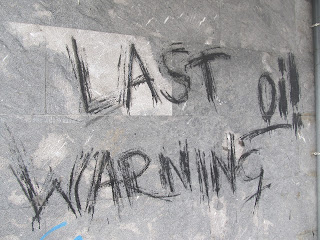Mondragon is in fact less than 30 minutes away from our apartment. We drove there on Sunday and decided to go check it and Rioja out. It was one of our more mellow weekends.
Mondragon is a fascinating town. Mondragon is a company town, owned and operated by the Mondragon Cooperative Corporation (or MCC). MCC is the world's largest worker cooperative, with it contributing 3.7% of Spain's GDP and 7.6% of its industrial GDP.
Mondragon was a struggling town in deep trouble after its participation in the Spanish Civil War. Jose Maria Arizmendiarrieta (pictured) was a Catholic priest who was assigned to its parish. He was sent to replace a priest who had been assassinated by Franco. An unpopular parish priest, he risked being removed by the Bishop. He then discovered a manner in which to reach out to his community: build jobs. He created the Mondragon Cooperative initially to create paraffin heaters, and over the decades the MCC has exploded into a multi-billion dollar industry. MCC has its interests in Caja Laboral Banking (a major sponsor to sporting teams in the Pais Vasco), Eroski (grocery) and Fagor (sheet metal and fabricator).
Mondragon follows the People and Sovereignty of Labor's business model, in that there are worker-owners throughout the industry. These members decided upon popular vote the pay wages for each employee, with the range being from 3:1 to 9:1 for each employee, with 5.1 being the average for most employers.
 |
| 'Arrasate' is the Basque word for 'Mondragon'. Mondragon comes from a nearby mountain peak shaped like a sleeping dragon. |
 |
| Two girls dressed in traditional Basque wear ;) |
 |
| It was pouring rain there the whole time |
The visit to Mondragon was brief, seeing as there was just not much to see. We were able to tour through the church, which was lovely, but other than that Mondragon is not known for its tourist trappings.
What I did notice was the aggressive graffiti and vandalism. This was one of the few cities in Spain where I did feel a little unsafe. Not because of any pre-conceived ideology about what the city stood for (basically socialisim) but because it was truly oppressive.
 |
| Amphitheater |
Nearly every surface was papered with posters about strikes from August, October and November, and Basque identity.
Even the church had a sign which reminded residents that the church "contributes to societal health". As if it needed to be posted as a reminder that church was here to help, not hurt.
It was immaculate inside.
Mondragon Company logo.
We decided to stop at a grocery store to get some fixings for lunch.
Sweet little grocery store. The glass front on the deli display case was shattered beyond repair.
Storefronts and apartments were broken and left unrepaired. I wondered if this had been a recent incident or if it helped explain the numerous barred windows.
Overall we were not terribly impressed with the city. I was fascinated by this dichotomy. How does one run a successful business with such a great emphasis on partnership and workers' rights, an yet leave their city covered in graffiti, garbage and broken windows? Is it not the focus of the society but just a symptom of living together...no pride of ownership or individual rights, just an understanding of common utilization?
If this is as what Peters says below- an example of 'people looking out for each other'...
Linguist and activist Noam Chomsky has said that while it offers an alternative to capitalism, its still embedded in a capitalist system which limits Mondragon's decisions:[29]
| “ | Take the most advanced case: Mondragon. It’s worker owned, it’s not worker managed, although the management does come from the workforce often, but it’s in a market system and they still exploit workers in South America, and they do things that are harmful to the society as a whole and they have no choice. If you’re in a system where you must make profit in order to survive.... Noted poverty expert and sociology professor Barbara J. Peters (Southampton College, Long Island University) has studied the incorporated and entirely resident-owned Basque town of Mondragón, Spain. "In Mondragón, I saw no signs of poverty. I saw no signs of extreme wealth," Peters said. "I saw people looking out for each other…..It's a caring form of capitalism.”[ |































No comments:
Post a Comment